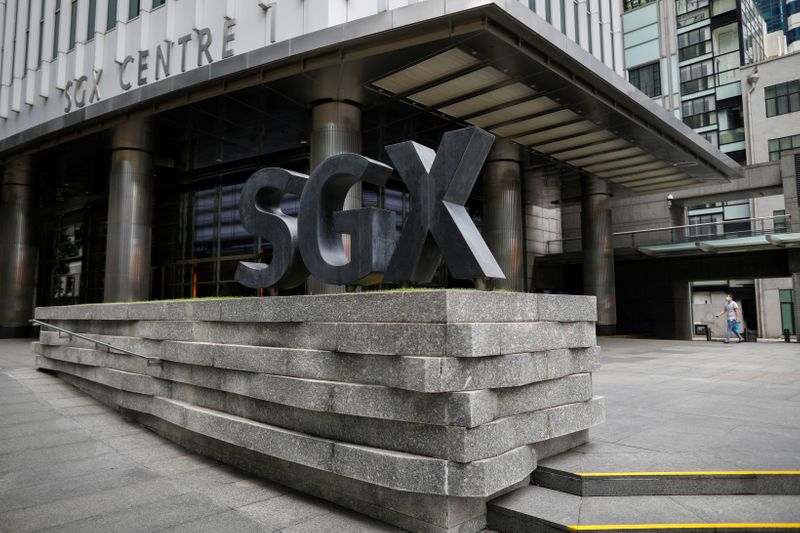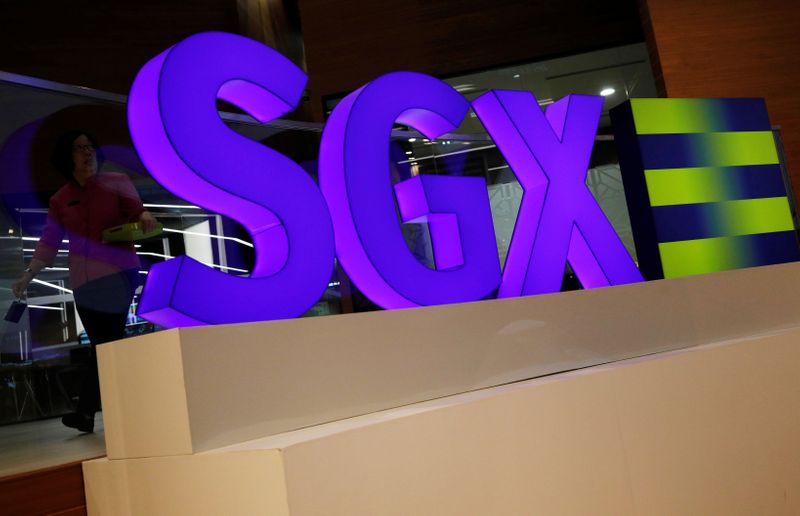By Anshuman Daga
SINGAPORE (Reuters) - Singapore Exchange (OTC:SPXCY)'s (SGX) Chinese index futures will remain the main tool for investors to hedge their Chinese exposure despite the Hong Kong bourse announcing a rival product, a top executive said, citing SGX's many derivative products.
SGX shares have lost 6% this week after Hong Kong Exchanges and Clearing (HKEX) won regulatory approval https://www.reuters.com/article/china-markets-hkex-futures-idUSL1N2PR0J6 last week following a two-year wait to launch its first derivatives product based on mainland Chinese shares, intensifying competition with SGX.
The move pushed up HKEX's shares by 5%.
The two exchanges are increasingly competing for business as HKEX seeks to diversify its revenues away from fees from share trading and expand further into derivatives, a traditional strength for SGX.
But the Singapore bourse says its China derivatives strategy of offering currency, commodities and equity derivatives for global customers, along with clearing services, means its flagship {{28930|FTSE ChChina A50 futures product, will remain popular.
"Index providers are listing their products everywhere and it's no longer about the product. It's about the platform," Michael Syn, head of equities at SGX, told Reuters in an interview this week.
SGX's FTSE China A50 futures, which are traded almost round-the-clock, and was launched 15 years ago, is one of its key contracts accounting for 53% of its total equity derivatives volume in the year to June 2021.
SGX also offers equity derivatives pegged to Taiwan, Japan and Indian markets.
Syn said SGX still had a 95% market share of Taiwan index futures trading even after its long running partnership with MSCI to provide many derivative products ended https://www.reuters.com/article/us-hkex-msci-deal-idUSKBN23302R and MSCI signed a new agreement with HKEX last year.
The MSCI Taiwan index futures was one of them and SGX launched an alternative FTSE Taiwan index futures contract in July 2020, ahead of the shift to the Hong Kong bourse.

Both exchanges are betting on sustained growth in Chinese derivatives as international investors in China seek to manage their risks.
"China futures volume as a proportion of the stock market is still in its very early stages. Our waterfront is all in China – China currency, China commodities, Chinese equities," Syn said.
